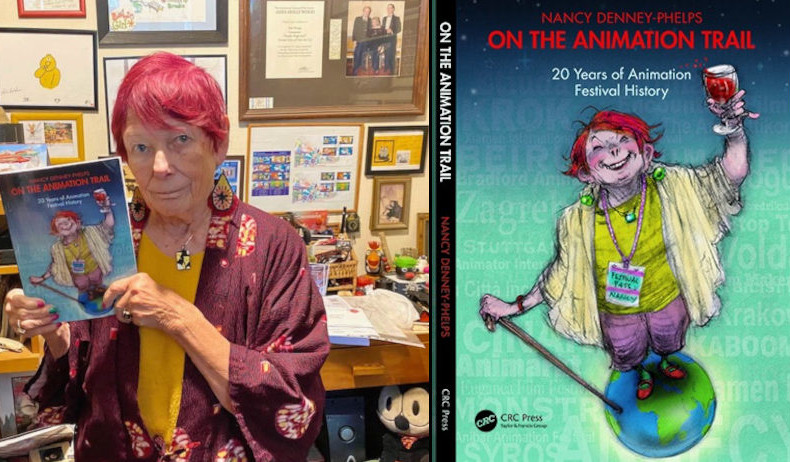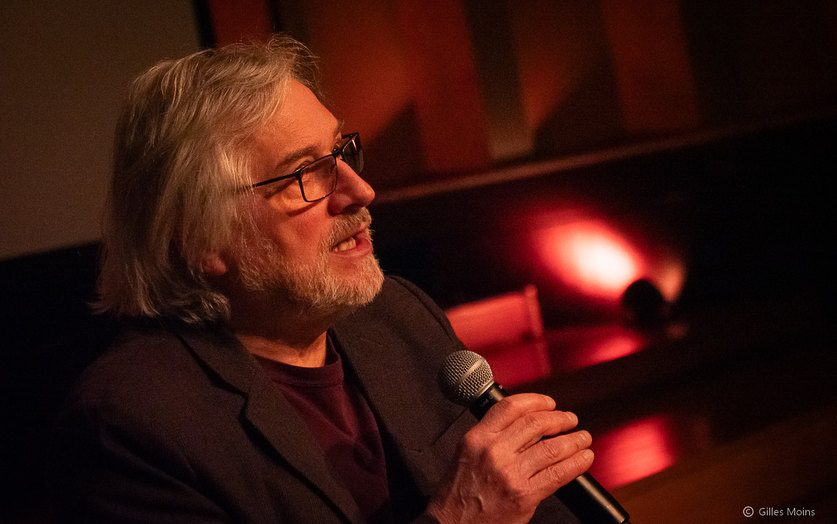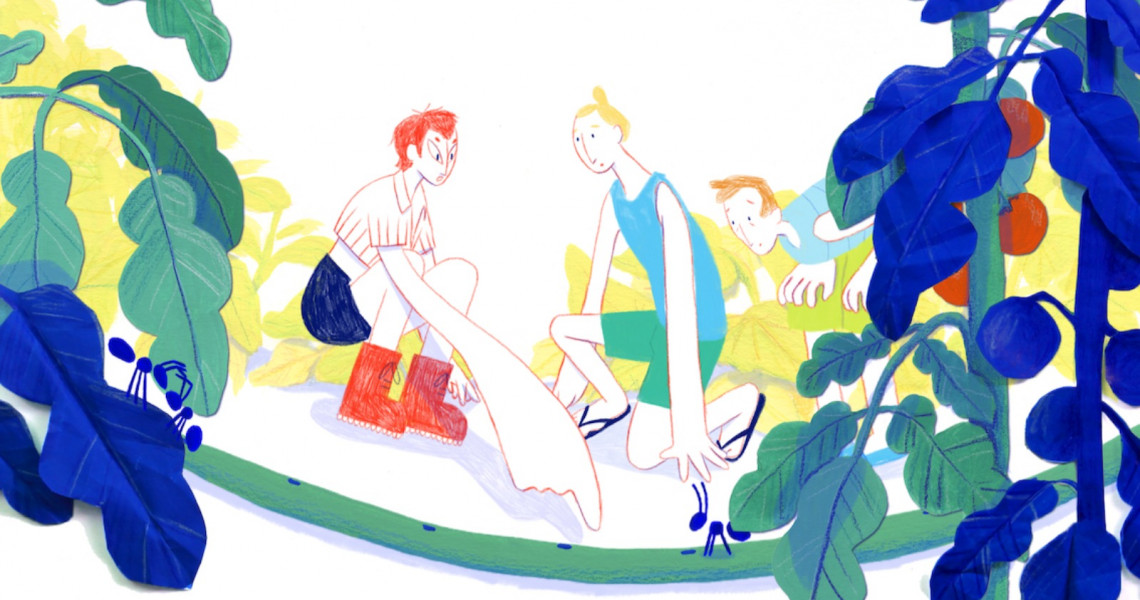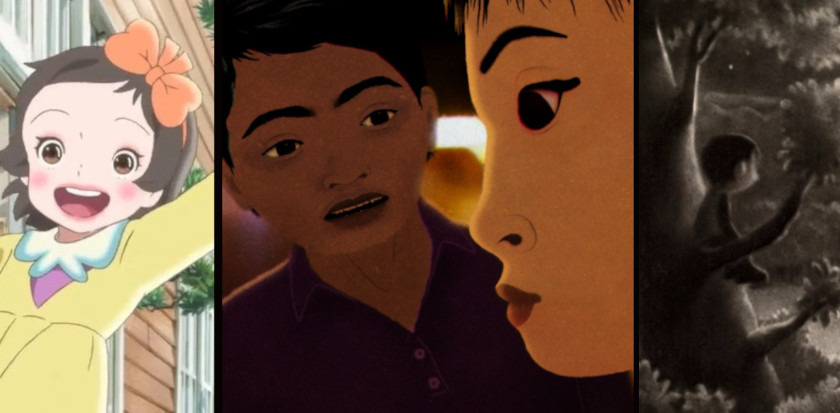On Actuality Undercurrents and Art-Self-Reflections: Notes On the Anima Brussels 2023 Shorts Programs
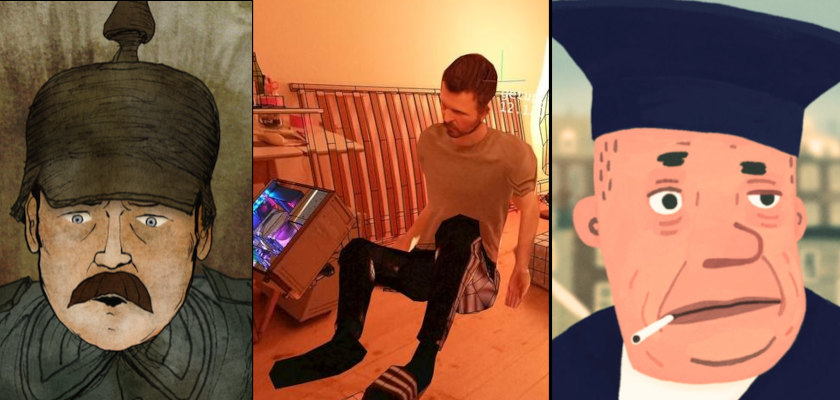
Anima Festival Brussels (17-26 February 2023) keeps to its usual timetable – however, calendars might high-handedly set the agenda of their own. Last year the festival was opening right the next day after the fatal date of our history-in-the-making, the Russian invasion of Ukraine; and back then I had to confess that my online watching got overlapped with and overshadowed by drastically different visual experiences and emotional toll – and therefore critical gaze came to tunnel vision in a way, hence turned somewhat narrowly selective.
This time Anima dates coincided with the gloomy anniversary, which few if any could’ve foreseen; and surely-sadly we got accustomed to life amid a backdrop of the lasting catastrophe. Having been pushed further in the wings, it gazes from that dark corner anyway and keeps speaking to us, if only through newsy noise, but also in deadly definite voices. Not expecting exactly the immediate resounding of this agenda in the current production and/or programming, still cannot help but try to grasp, to hear out its distant reverberations, even if melted in, buried deep down in motifs and variations; or even if something reading-in on my own, unavoidably and, hopefully, excusably.
All the schedules interfere; Anima’s place in the festival cycle inevitably assumes multiple functions: opening up the national scene, launching the new international season, possibly with newly discovered-submitted films, and summing up the balance of the previous one, revisiting a good number of already known entries carried over.
Of those – yes, would agree with the jury – the strongest and most substantive here was ‘Letter to a Pig’ (Tal Kantor, France, Israel, 2022), the Grand Prix winner. There was enough talk on it lately; nevertheless, I’d add some touches – maybe filling certain lacunas. From the first viewing, I considered it not perfectly flawless, but even the possible inherent contradictions felt fruitful, pregnant with insights. Its messaging isn’t limited, of course, to the Holocaust theme revisited – however inescapable and noble that alone would’ve been; it also attempts to deal with hard and complex matters of the historical memory or lack of such in incoming generations, and the very nature of ‘indirect’ remembrance and challenges of reminding and ‘actualizing’; and then, of moral standing and the deep-reaching problem of judgment. Needless to say, it comes home right now, amid the waves of deadly mythologizing, ‘special military operation’ style, of the narratives-identities-memories, true and false, with murderous consequences; and at the face of those, in striving for, if not anticipating realistically, new Nuremberg… As to the form and method Kantor employs, with all the general reservations I might have about rotoscoping of any fashion, her trademark device (yet from earlier work) – oscillating between the photographic and the drawn – comes as especially pointed and meaningful here: brings into play a certain scent of the documentary. Well, after all, it is in some sense a loose document of inner tensions and revelations (not to argue on the scope of animadoc per se).
Another grandee in the main competition, ‘The Flying Sailor’ (Wendy Tilby and Amanda Forbis, Canada, 2022) also carries over the catastrophe theme or tone, for it’s based on the factual disaster, that terrifying 1917 trityl military cargo explosion in Halifax harbor – blast from the past indeed, regards from WW1. The duo of contemporary classics, however, is not up to document or to explore the matter in full, giving maybe just a hint to that; instead picks a weirdly astonishing particularity out of the whole, and transforms it, in a signature style, into a mesmerizing and rich in textures and perspectives, but still rather just an exercise, to my mind. It’s reaching in flight stratospheric heights, but at the expense, I’m afraid, of deep and captivating existential tension that we all keep in thankful memory from the previous works and would expect of them in advance, justifiably or not.
And then yet another WW1 reference, or rather full-fledged reincarnation, from the immortal classic of classics, 94 years young Raoul Servais, together with Rudy Pinceel (‘Der Lange Kerl’, Belgium, France, 2022, Belgian panorama): chilling hyperrealism of that infamous trenches in computer-glazed live-action, intermitting with old-good drawn animation of pretty catchy variety. The narrative and message of this soldier’s story or even fable might be read at different angles; what for me now matters more is the very sad and ugly rhyme with the trenches of today, not very far to the East, the ongoing meatgrinder as though continued from the one of the past, as though a century had passed in vain.
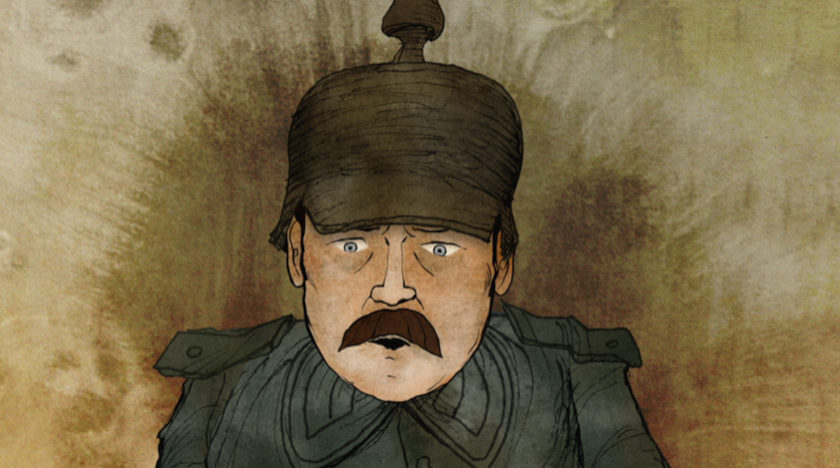
Der lange Kerl
There are also apocalyptic motifs, more or less pronounced, scattered throughout films and programs. Even seemingly on a lighter side, mixed in the music-based pieces, like ‘The Final Act’ (dir. Mathilde Loubes and Antoine Bonnet, France, 2022, International competition) and ‘The Last Song on Earth’ (dir. Gaia Alari, Italy, United States, 2022, Animated night) – they strangely rhyme in that both feature musicians, classical or jazzy, performing at the very edge, and beyond, the catastrophic waves or floods, up to the end. (They both also rhyme in painterly styles, perhaps not by chance, given the feel of fluidity that comes along). Environmental alarmism? – probably so, on the surface of it; but also, I suppose, the broader anxiety dispersed in the air and artistic palettes. As it overflows at full throttle, together with the rising sea in a superstorm, the ruins of civilization in ‘The World’s After’ (dir. Florentina Gonzalez, France, 2022, International competition): an uneven at times, but even through that stingy engaging piece, cutting to the quick, in the atmosphere and… shall we say: in characters? – even if they are of the unaffectedly ghostly variety, since seem not to have bodies in flesh under clothes, and most strikingly, faceless. Naturally, the face of the end of things as we face it.
On the other end of the reflection balance-beam this leads to the identity question(s) – and questioning this premise altogether. As in ‘Persona’ (dir. Sujin Moon, South Korea, 2022), my pick in the International student competition. The title doesn’t lie, and the artificiality of style and technique resonates with the theme: it’s all about masking yourself to the bitter end (maybe a nod to/from our years of mask mandates), in other words – of losing your face, figuratively and literally, and then ultimately, in a phantasmagoric coda, losing yourself. Again, yet another telling rhyme: my favorite in the Animated Documentaries program, ‘Prosopagnosia’ (dir. Steven Fraser, UK, 2021) – is exactly about face-blindness, as a neuro-condition and identity search; another facet of losing face, of the Other – and yourself, it appears. The personal story is told visually with humbly exquisite primitivism – just going through, fingering (openly-literally) the memory-box stuff, occasional iconography in photos and sketchbooks; to my taste and experience – one of the most convincing, if simple-minded, justifications of the genre.
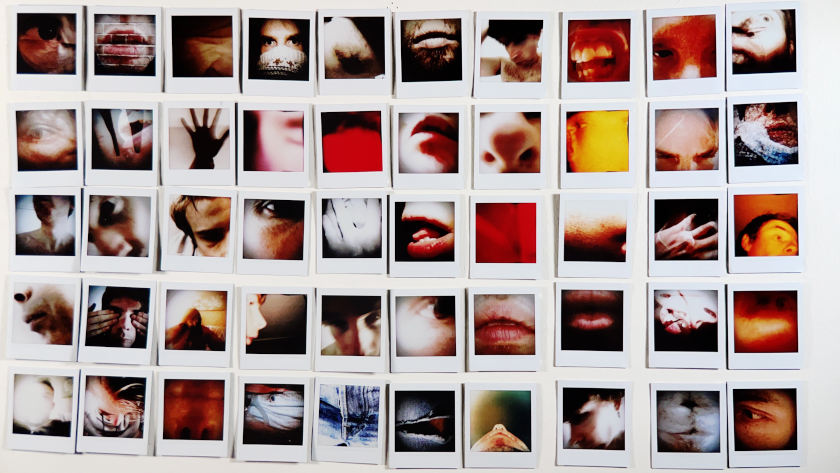
Prosopagnosia
Facial identity, or rather the limits of transformations-substitutions, is put under a different kind of scrutiny in highly technical, AI-inspired, if not aided, exercise by expected suspect Nikita Diakur, ‘Backflip’ (Germany, France, 2022, Animation Night program) – in a weirdly immediate dialog, the interplay between the creator and creation, person and persona, again, though this time called, presented as an avatar, being build-programed-run right on a go. Funny or frightening, eye-opening or shutting – depends on perspective. For me it stands in yet another line of motifs here: art-craft self-reflections; ‘open device’, so to speak, works – and they feel connected somehow to all of the above, as symptomatic of a broader condition in a certain way. In this vein, from Animated Night diverse package I’d pick not the audience choice: ‘Search for the Human’ (dir. Mélina Ienco, Lucie Juric, Caroline Leibel, Faustine Merle, and Claire Pellet, France, 2022), a fantasy inhabited by griffins and such. But rather its almost clone-double: ‘La Quête’ (Victor Haegelin, France, 2022) – as if the same homework task delivering, but in contrast, through courageously transparent and playful, in singing along, exploration of the puppets’ properties and limitations, opening up the issues of conditionality and ‘lyrical persona’ (yes, motifs interlace, to me). Almost the same goes for ‘This Will Not Be a Festival Film’ (dir. Julia Orlik, Poland, 2022, International Student Competition), a jokingly-honest report on overcoming the writer’s/director’s block – through choosing first-person mode as ‘persona’ and immediate family as ‘the other’, also in ‘open-device’ fashion (exposing nuts and bolts of the craft) stop-motion practice run.
And finally, a piece that ringed many bells to me, maybe a loose counterpoint of all the variations I’ve been tuned to here, ‘Siberiade’ (dir. Nado Poton, Belgium, 2021, award in National competition) – sort of masked confession, first-person as semi-persona, a personal life-story narrative of a refugee – from Russia via Ukraine, no less – in the frame of rewind into recent history; rather fictionalized (and I'm in a position to judge that), streamlined-sharpened, albeit in a pretty smart manner. (Commonplace truths-myth are to an extent representative, after all, and do throw some light onto current tragedies). And the visual narration flows somehow in a similar channel: bold-generalized graphics, arty-cartoonish with good nods to constructivist posters and broader traits of early Soviet avant-garde, jiggling with all the symbols and emblematic gestures, oldish and newish – rather catchy if superficially. A surprise encounter altogether; however, isn’t that exactly the sign of the time.
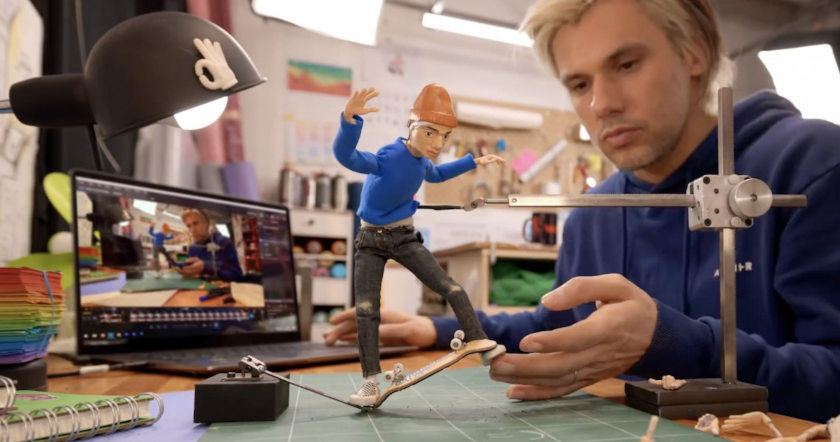 La Quête
La Quête
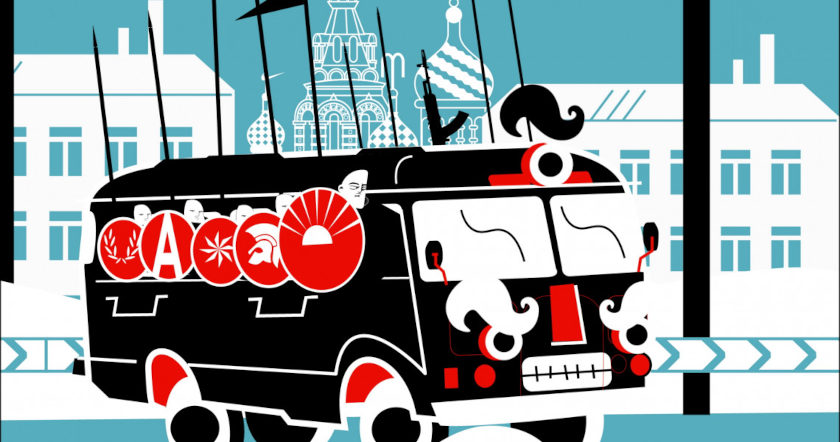
Siberiade
contributed by: Mikhail Gurevich
The 42nd edition of the Anima Festival took place from 17-26 February in Flagey, Brussels.




